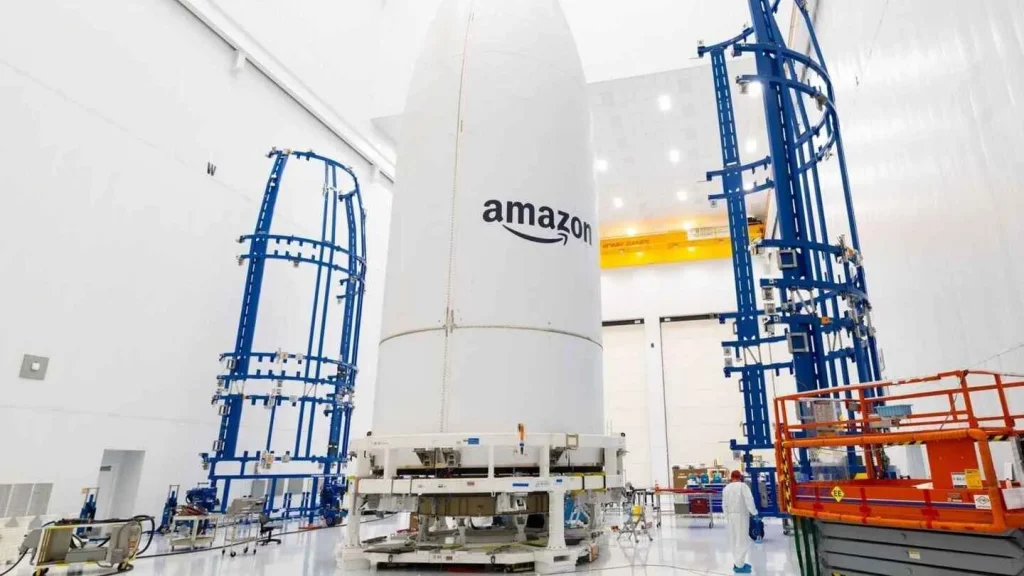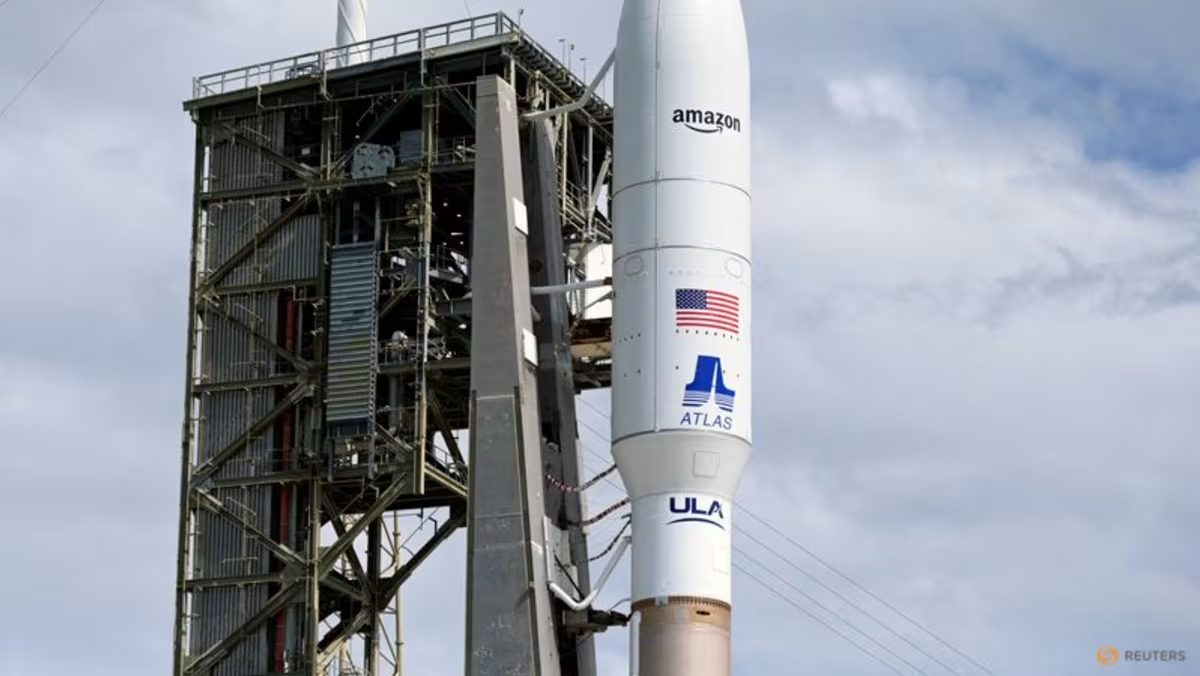The inaugural launch of Amazon’s Project Kuiper satellites, designed to rival Elon Musk’s Starlink internet constellation, was called off on Wednesday due to poor weather conditions.
The rocket, an Atlas V operated by United Launch Alliance (ULA) — a joint venture between aerospace giants Boeing and Lockheed Martin — was grounded after persistent winds and thick cumulus clouds made take-off unsafe.
“Stubborn cumulus clouds and persistent winds make liftoff not possible within the available window,” ULA announced on its live blog. Cumulus clouds pose a particular hazard, as rocket launches through them can trigger lightning strikes, the company added.
Live footage showed the rocket standing on the launchpad at Cape Canaveral, Florida, with steam periodically venting from it during several delays. The launch had originally been scheduled for 7:00pm local time (2300 GMT).
The mission was due to deploy 27 satellites into low Earth orbit, forming the first operational stage of Amazon’s Project Kuiper. Like SpaceX’s Starlink, the system aims to deliver high-speed internet to remote, underserved, and disaster-affected areas around the globe.

Once deployed, the Kuiper satellites will orbit a few hundred miles above Earth. Amazon, owned by billionaire Jeff Bezos, ultimately plans to launch over 3,200 satellites to establish a full network. The company says it expects the service to go live later this year, although pricing has yet to be disclosed. It has pledged to maintain its reputation for affordability.
The project puts Amazon in direct competition with Starlink, which has launched over 6,750 satellites since 2019 and currently serves more than five million customers worldwide. Starlink has already been deployed in crisis areas such as Ukraine and Morocco following natural disasters and ongoing conflict.
Unlike traditional satellite internet services that rely on satellites stationed around 35,000 kilometres above Earth, both Starlink and Kuiper use satellites in low Earth orbit — typically between 550 and 1,300 kilometres in altitude. This proximity reduces latency and makes data transfer much faster, enabling reliable internet access even in areas without traditional infrastructure.
Amazon explains that the cost and complexity of installing conventional fibre or copper lines make satellite solutions ideal for remote regions. However, the lower orbit also means each satellite covers a smaller area, requiring thousands of them for full global coverage and necessitating frequent launches.
Amazon has already booked over 80 launches for future satellite deployment. These will be delivered via a range of providers, including ULA, Bezos’s Blue Origin, and even SpaceX, despite the companies competing in the same market.
Other competitors in the space include OneWeb, based in Europe, and China’s state-backed Guowang project. However, the growing presence of satellites in low Earth orbit has raised concerns about space congestion, potential collisions, and interference with astronomical research.
The increasing role of private firms in space has also drawn political scrutiny, particularly regarding Musk’s influence as an advisor to US President Donald Trump. Musk recently voiced reservations about continued Starlink support in Ukraine — where it is vital for military communications — though he insisted the network would remain operational despite his personal disagreements with US foreign policy.


 Trending
Trending 